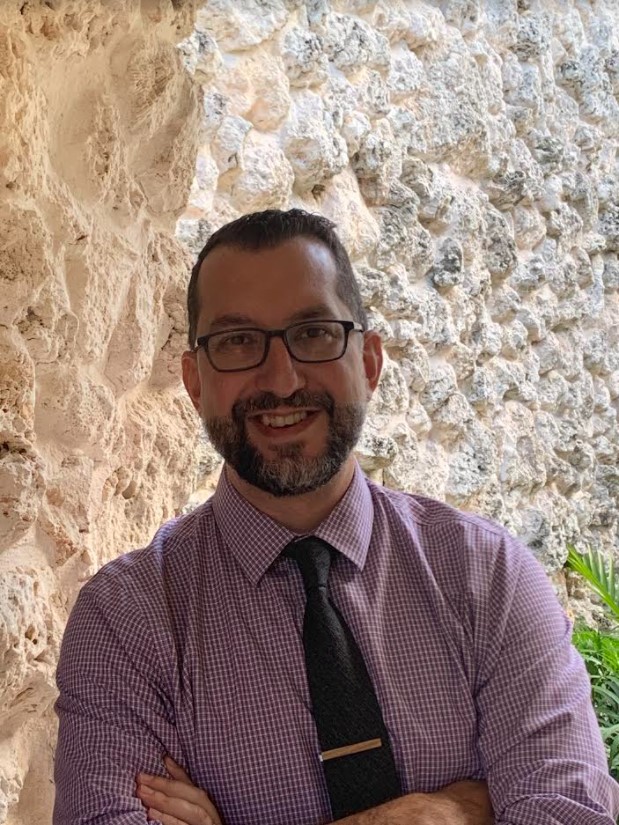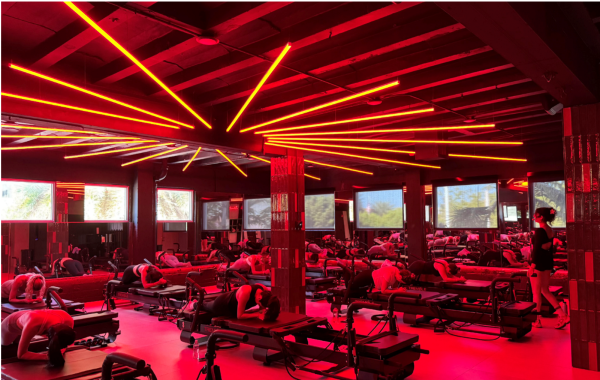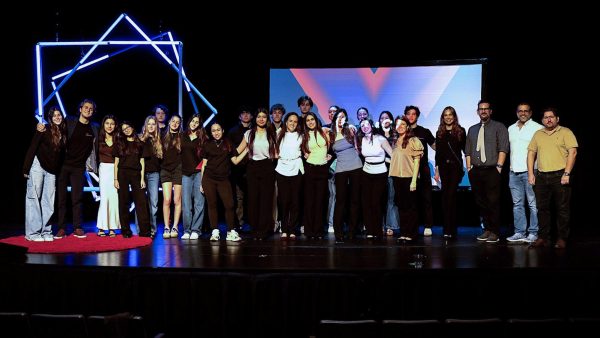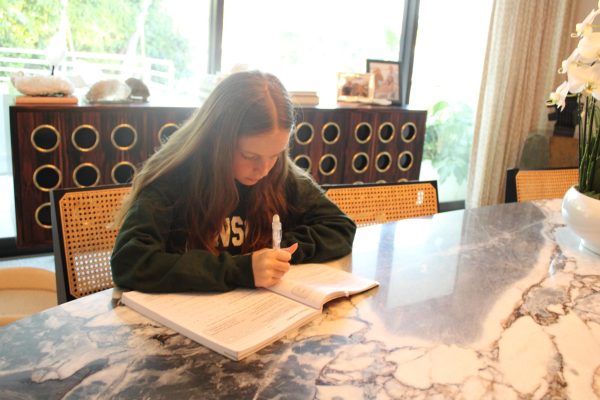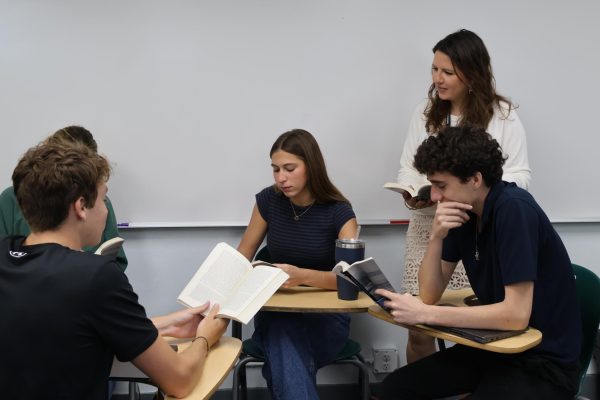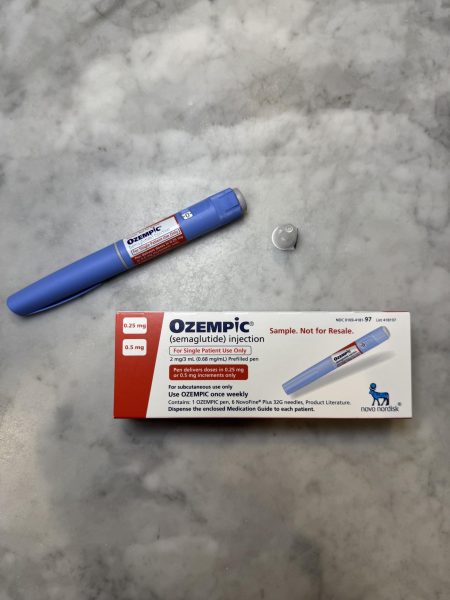The Other Freshman Class
New Upper School teachers and coaches speak about the paths that brought them to RE
Dr. John Ermer, a new teacher in the History and Social Sciences Department.
The Ransom Everglades Upper School has welcomed 14 new instructors this year whose roles range from coaching Crew to teaching Chinese. Their backgrounds are as varied as their fields of expertise, and they spoke with The Catalyst about the unique pathways that have brought them to Ransom Everglades.
Captain Erica Bartos has held a variety of positions in her life, “from tow boat captain to Environmental Statistics teacher to mechanical engineer.” All of them “merge,” she says, into her new role as RE’s dockmaster. Captain Bartos had “been teaching in a math/science classroom and working on boats of some form in the summers for 15 years,” and as dockmaster she does both at once. Captain Bartos’s love of nature also led to her joining the RE community. She credits our nearness to “the Atlantic Ocean, Biscayne National Park, and the Everglades” for bringing her to RE.
Ms. Ariel Lewis, who teaches English at the Upper School, has ten years of teaching experience. She moved to Miami from Cleveland, OH, where she taught at the Hathaway Brown School, in order to be closer to her fiancé’s family. She says that she “knew she wanted to teach at a school that valued academic excellence, so RE was a perfect fit.”
Ms. Lewis’s parents were both high school teachers as well, and she said that it is “very helpful” to have “teachers in the family who understand what the job is like,” because she can share her experiences with them. Not only does Ms. Lewis have extensive experience as a teacher, but she also is an award-winning published author who has won the Elizabeth George Foundation Grant.
Dr. John Ermer, a new history teacher, had a variety of experiences before arriving at RE. In the 2000s, Dr. Ermer worked as a freelance writer for “many different publications, outlets and businesses.” These include a stint during which he covered high school sports for the Miami Herald between 2004 and 2006. He began teaching in 2005 and described “falling in love with it” almost as soon as he started.
Dr. Ermer also recently earned his PhD in Atlantic History at Florida International University, for which he did extensive research. His own description for his research is that he “looked at Lebanese and Syrian migration to Cuba and the ways in which Cuban immigration and citizenship laws affected identity formation and the sense of belonging and citizenship amongst those Lebanese and Syrian identities.”
This research included trips to Cuba in order to do research in the Cuban national archives, the Archdiocese of Havana and other sources of primary documents. Dr. Ermer described Cuba as “not an easy place to do work, and to get into to do work.” As he recounted, he needed to follow a bureaucratic process in order to be able to conduct research in Cuba “pretty much in the interest of surveilling” him. After going the first time, though, “it became sort of routine.”
Dr. Giacomo DiPasquale, who teaches economics and comparative government, grew up in Italy, but moved to the United States because he “wanted to get better opportunities for his career.” He has lived in the United States for the past six years, and earned a doctoral degree and also taught as a professor at Loyola Marymount University in that time. Not only is Dr. DiPasquale an expert in international economics and politics; he also speaks five languages and once studied to be a doctor before finding his calling in economics.
Almost a semester into the school year, these new teachers and coaches have begun getting used to being part of the RE community. But teaching or coaching at RE is still full of surprises.
Dr. Ermer remarked that “the biggest surprise is how talented and committed the students are.” He was “blown away,” he said, by the quality of the presentations of this years’ Bowden Fellows. Dr. DiPasquale went even further and proclaimed that RE students are “much more prepared than most college students that [he] has met in [his] life, even at competitive universities.”
New faculty members found other, less academic, aspects of the RE community to be equally surprising. Dr. Ermer and Ms. Lewis were both delighted by Hawaiian Shirt Thursdays. Captain Bartos and Dr. DiPasquale were both surprised by how cold it can get inside the classrooms. Captain Bartos said she didn’t understand how “students could wear jeans and hoodies with it being so hot outside. Then [she] sat inside for one class period and understood.”
Another surprise that many teachers shared was the friendliness of the RE community. Ms. Cece Spencer, who teaches the “Black Voices in Social Movements” class and helps coach volleyball and speech and debate, described being “surprised by how helpful the community is,” expanding that “it makes teaching easier.” Dr. DiPasquale said that fellow faculty members “really make [him] feel kind of pampered and put [him] in the best condition to succeed.” “Everyone is ready to help out with suggestions to ask if you need anything,” he added.
For Ms. Lewis, the biggest surprise was more related to the school’s tropical environment than anything else. “[I was] surprised by a few lizards who somehow managed to find their way into my classrooms.”
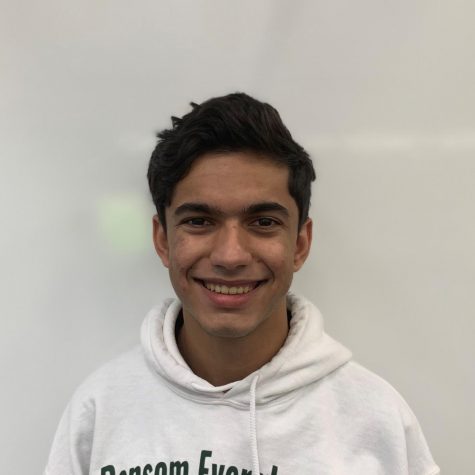
Javier Kumar '22 is a staff writer for The Catalyst. He specializes in features.


